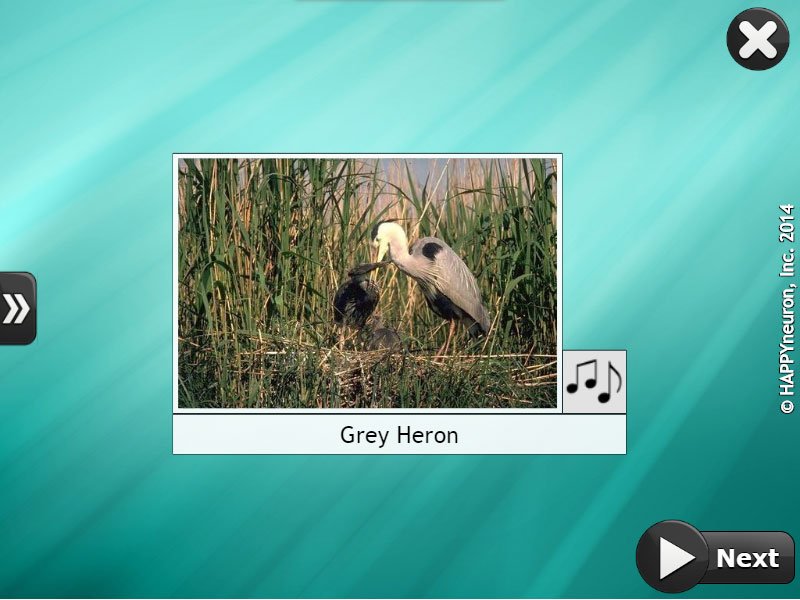Working with Aphasia? How Bird Songs Can Help!
Aphasia is a common disorder resulting from a stroke that impairs a person’s ability to produce and understand language. Speech therapists often work with a person on verbal fluency and memory skills. These elements are critical cognitive functions required for language.
However, many overlook the need to work on auditory processing skills with individuals with aphasia. People with aphasia may have difficulty with one or more cognitive areas, such as auditory processing. Auditory processing uses cognitive functions such as processing speed, working, verbal, and semantic memory to comprehend auditory information.
Testing Auditory Processing
How can someone with aphasia work on auditory processing?
One way is using digital cognitive therapy tools that offer auditory processing exercises. Using a tool like ours, therapists can use to work with their patients on auditory processing skills. These tools aim to assist patients with all types of cognitive skills. One of our popular auditory processing exercises is Bird Songs.

You may ask how and why Bird Songs is utilized to develop a patient’s auditory processing skills.
This exercise tests auditory processing skills along with visual and verbal memory. Patients see pictures and names of birds while their unique calls play simultaneously. Once the patient learns each bird’s name, sounds, and characteristics, they are asked to recall and place the names, pictures, and songs of the birds they memorized.
For an added challenge, outside of the platform, you can have your patient practice saying the names of the birds out loud they have memorized to work in speech production.
Goals of the Exercise
Functionally, this exercise will help your patient recall the names, appearances, and sounds of stimuli in their environment. Your patient will need these skills when participating in a work meeting or conversation with a group of people. Because this exercise provides language, visual, and auditory elements, this makes it an excellent exercise to work on a variety of cognitive skills that patients with aphasia often struggle with.
Conclusion
In conclusion, Bird Songs offers an opportunity to work on critical cognitive skills – verbal memory, visual memory, and auditory processing. By working on these skills using Bird Songs, therapists may help their patients better recall and comprehend auditory stimuli. Individuals may see an increase in their ability to keep track of different speakers within a meeting or during a movie.
Want to try this exercise with your patients? Sign up for a free trial of HappyNeuron Pro and set your patients up with exercise plans that include Bird Songs.









